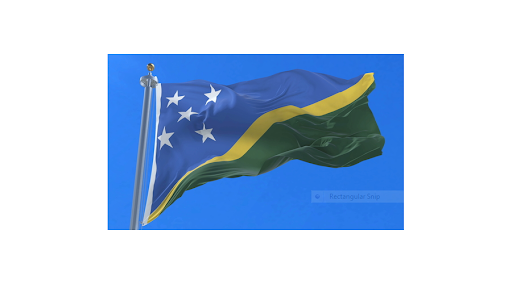In today’s Solomon Times Online there is an Editorial piece, political in its content and nature, sourced from Sutterstock.com and a piece worthy of thought in respect of the present day Solomon Islands, relationships and guiding principles for the nation.
It is a political piece, as said, and it will be for readers to see, contemplate and consider as valuable advice, or not.
My view and leaning, as it has always been towards the Solomon Islands, is not political but more concerning, charity help and based on one nation, one people, one flag solidarity and universal health care
Some of my writing, over many years, may have sidelined a little into the political arena, but only because in trying to help good causes, politics and especially the need for government and diplomatic support has centred on the need for funding for the causes I regard as essential for the needs of the people, particularly those needing health care, medical treatment and welfare, including all those with disabilities putting them at a disadvantage in society.
Prompted once more to cite the recent tragic incident of the sad and premature passing of a teenager suffering from rheumatic heart disease (RHD), when help and likely recovery from RHD was within sight, I want to again refer to RHD and hopefully see new initiatives from the Solomon Islands government, its diplomatic partners, international agencies and ‘friends’ to ensure both the nature of RHD is fully understood, preventative measures for detection and treatment are put in place and those patients already assessed as having the chance of offshore treatment being beneficial are assisted in their need for medical treatment offshore being given the financial support and facilitation, including visa processing, with empathy and understanding by all those involved in overseas referrals.
I am not a doctor and therefore rely on medical information existing on the internet to give details of RHD and intervention treatments. I will quote what I read today to illustrate my concerns.
Quote.
Rheumatic fever and rheumatic heart disease continue to be a huge public-health burden on many Pacific Island countries, including the Solomon Islands. Prevalence reported in some nations are some of the highest seen globally, yet many countries in the region do not have national disease registers. Despite the will of many Pacific Island countries, there are a number of barriers to the implementation and sustainability of effective coordinated prevention programs, including limited funding and competing health priorities. In promising recent developments, a number of countries in the region have been able to develop or strengthen national rheumatic heart disease registers. These registers allow for more effective delivery of secondary prophylaxis, the mainstay of disease control in the Pacific. Primary prevention of rheumatic fever and screening for rheumatic heart disease are important adjunctive strategies. Recent advances in screening methods, focusing on portable echocardiography, may allow for the early detection of rheumatic heart disease in the community.
Rheumatic fever usually follows an untreated beta-haemolytic streptococcal throat infection in children. It can affect many parts of the body, and may result in rheumatic heart disease, in which the heart valves are permanently damaged, and which may progress to heart failure, atrial fibrillation, and embolic stroke. Nowadays, rheumatic fever mostly affects children in developing countries, especially where poverty is widespread. Up to 1% of all schoolchildren in Africa, Asia, the Eastern Mediterranean region and Latin America show signs of the disease. Of 12 million people currently affected by rheumatic fever and rheumatic heart disease, two thirds are children between 5 and 15 years of age. There are around 300 000 deaths each year, with two million people requiring repeated hospitalization and one million likely to require surgery in the next 5 to 20 years. Early treatment of streptococcal sore throat can preclude the development of rheumatic fever. Regular long term penicillin treatment can prevent rheumatic fever becoming rheumatic heart disease, and can halt disease progression in people whose heart valves are already damaged by the disease. In many developing countries, lack of awareness of these measures, coupled with shortages of money and resources, are important barriers to the control of the disease.
End of quote.
A quick read should have made clear where the Solomon Islands stands today in the battle with RHD, with funding and early detection and effective treatment in particular.
I have come to realise there are already a good number of RHD patients at the NRH with RHD and who might already have been assessed of having a chance of surgery and recovery if only there was the funding through the government through the MHMS and separate and adequate budget for the NRH.
I pose the double question in closing this piece, will the SIG see that the MHMS/NRH gets its own budget, and also the need for the previous 10 bed system arrangement (now in abeyance) re-started with St Vincent's hospital in Sydney.
Finally, I am aware of yet another young child with RHD desperately in need of offshore transfer to the St. Vincent Hospital in Sydney for medical treatment, with possible surgery to aid his full recovery. His family in the Solomon Islands is appealing for the financial support and a letter of that support from a donor or donors to satisfy the Australian authorities’ rigid visa requirements.
Will anyone please let me know if they will help the child and his family? I can be contacted by the link on my international website, below, or through email at nkhwazi2002@yahoo.com
Yours sincerely
Frank Short



